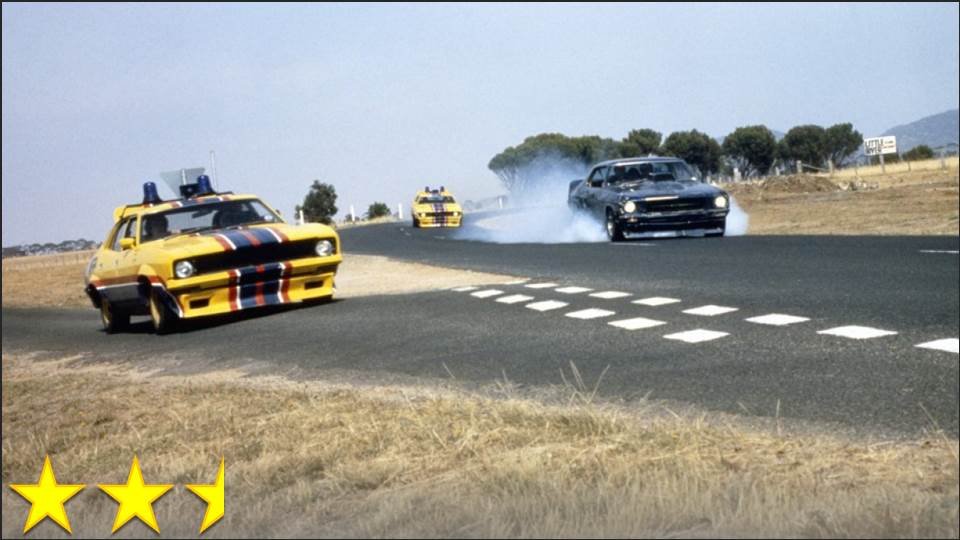What . . . the what? I’m very confused about what on earth this movie is supposed to be. The entire selling point of Mad Max – and the story synopsis on the back of the DVD case – is Max’s revenge plot. But this plot is just the third act. The entirety of acts one and two is spent setting up a conflict, rather than following one. I’m not saying that every film must follow the standard Hollywood narrative format, but the best deviations from this format are the ones that deviate to saturate the conflict, not distract from it. In comparison to my expectations, most of Mad Max just feels dull and pointless.
This film raises the usual questions that I struggle to answer when writing on a film I don’t like:
- Is it a good film even though it’s not my cup of tea?
- Can it be held accountable for not living up to its marketing if the film’s marketing is the problematic part?
- And is it really a bad thing when a film does not make it clear how it should be approached/read?
To answer the first question, I do think it is possible for me to recognize films that have many positive elements, even if I don’t particularly like them. I have spent far too much time writing about Pan’s Labyrinth because I know that it is a very impressive film, yet somehow I hate it immensely. I’m not sure that this movie is the same kind of situation. Mad Max does not strike me as remarkably well-crafted, even for what it’s trying to be, regardless of whether or not I happen to like what it’s trying to be. Perhaps the problem is that I cannot tell what it is that I was supposed to be getting out of it, but now that I know what the movie is about and what it spends its time focused on, I still don’t think I’d appreciate it more on my second viewing. Its story is simply lacking.
For the second question, I don’t think I have a good answer. If a movie’s marketing is really bad, but the film itself ends up being spectacular, I don’t think I could fault it much for the marketing. After all, the marketing is not necessarily apart of the film itself, and is generally not really controlled (or even influenced much) by what the director and producer say. On the other hand, if a film gives me less than what the marketing had me expecting, that’s a negative thing. It shows that there’s potential there for a good movie, but the filmmakers didn’t make something as good as what the film could have been. On the other other hand, what’s especially difficult here is discerning when a film is just “different” from its marketing, but not particularly better or worse. With Mad Max, it’s clear to me that all of the time spent “world building” in the first hour could have been spent on an exciting plot that properly mixed in the world building, sort of like The Princess Bride, and that would’ve been far more entertaining (without deviating from what was advertised or what the movie promised).
The last question is perhaps the most controversial, and what could easily make me seem like an idiot to a heck of a lot of people. I’m going to answer this question with a yes, but I’m not sure that it’s a yes in every case. I’ve been thinking a lot lately about my review of Pulp Fiction, which I have come to disagree with over time. It seems to me that I only liked the film because I had heard Tarantino explain in an interview how to approach and/or process it. I have come to recognize that, without an explanation of how to approach it, I couldn’t have understood it. Not only that, but I couldn’t have understood how to understand it. That, I think, is the key – I don’t need a filmmaker to hold my hand and explain everything to me, but I need to know what language I’m seeing before I can read it, or what game I’m playing before I can win it; the difficulty of the game is irrelevant.
I don’t really know if this review will make sense to anyone else. I’m not even sure that it makes sense to me. My goal has simply been to explore why I feel the way I do about this movie, and hopefully to understand myself (and cinema) better for having done so. Mad Max is certainly a special film that has some value to it, but the vast majority of the film did not grab me, and I was left wanting much, much more. Perhaps my problem is not so much the film as it is the glimpses it shows of what it could have been.

